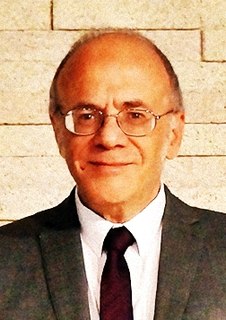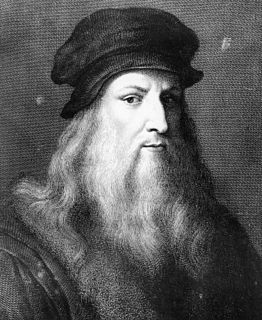This article relies largely or entirely on a single source .(May 2018) |
Huw Parri Owen (30 December 1926 – 26 October 1996) was a Welsh theologian, writer and academic.
This article relies largely or entirely on a single source .(May 2018) |
Huw Parri Owen (30 December 1926 – 26 October 1996) was a Welsh theologian, writer and academic.
Owen was born on 30 December 1926 in Cardiff and was educated at Cardiff High School and Jesus College, Oxford, where he studied Literae Humaniores and Theology. He was ordained as a minister in the Presbyterian Church of Wales in 1949 in order to take up an appointment as Professor of New Testament at the United Theological College Aberystwyth (1949-53) before moving to Bangor as Lecturer in New Testament Studies at the University College of North Wales.
Though he was at first a biblical scholar, who published several articles on New Testament subjects in journals, [1] Owen's interests rapidly turned to more philosophical themes. His first book, Revelation and Existence: A Study in the Theology of Rudolf Bultmann, was published in 1957 whilst at Bangor. Hywel Lewis, who had been a professor at Bangor, had moved to King's College London in 1955 and, through his influence, Owen was appointed as a lecturer in the philosophy of religion there in 1962; he became Reader in 1963. A concern for traditional theistic belief lasted throughout his life and writings, though he continued to review books in biblical studies as well as philosophy of religion, especially for the journal Religious Studies in the 1960s and 70s. He was appointed Professor of Christian Doctrine at King's College in 1971, a post he held until 1983. He was regarded as a distinguished theologian, who wrote and spoke with clarity. He died in Cardiff on 26 October 1996. [2]
Though Owen's books published in his lifetime all treated of broad issues in theism such as the concept of God, knowledge of God, and arguments for his existence, a more specific study on the subject of prayer was published posthumously (see list of books below).
A short study of Owen's thought was published in 2012 by Alan P. F. Sell. [3]
Owen's publications include: [2]
Open theism, also known as openness theology and free will theism, is a theological movement that has developed within Christianity as a rejection to the synthesis of Greek philosophy and Christian theology. Open theism is typically advanced as a biblically motivated and philosophically consistent theology of human and divine freedom, with an emphasis on what this means for the content of God's foreknowledge and exercise of God's power.

Richard Granville Swinburne is an English philosopher. He is an Emeritus Professor of Philosophy at the University of Oxford. Over the last 50 years Swinburne has been an influential proponent of philosophical arguments for the existence of God. His philosophical contributions are primarily in the philosophy of religion and philosophy of science. He aroused much discussion with his early work in the philosophy of religion, a trilogy of books consisting of The Coherence of Theism, The Existence of God, and Faith and Reason.

The following outline is provided as an overview of and topical guide to Christian theology:

Paul Johannes Tillich was a German-American Christian existentialist philosopher and Lutheran Protestant theologian who is widely regarded as one of the most influential theologians of the twentieth century. Tillich taught at a number of universities in Germany before immigrating to the United States in 1933, where he taught at Union Theological Seminary, Harvard Divinity School, and the University of Chicago.

Benjamin Breckinridge Warfield was professor of theology at Princeton Seminary from 1887 to 1921. He served as the last principal of the Princeton Theological Seminary from 1886 to 1902. After the death of Warfield in office, Francis Landey Patton took over the functions of the office as the first president of seminary. Some conservative Presbyterians consider him to be the last of the great Princeton theologians before the split in 1929 that formed Westminster Theological Seminary and the Orthodox Presbyterian Church.

Charles Hartshorne was an American philosopher who concentrated primarily on the philosophy of religion and metaphysics, but also contributed to ornithology. He developed the neoclassical idea of God and produced a modal proof of the existence of God that was a development of Anselm of Canterbury's ontological argument. Hartshorne is also noted for developing Alfred North Whitehead's process philosophy into process theology.
Presuppositionalism is a school of Christian apologetics that believes the Christian faith is the only basis for rational thought. It presupposes that the Bible is divine revelation and attempts to expose flaws in other worldviews.
Because scholars have tended to use the term in different ways, biblical theology has been notoriously difficult to define.
Robert Tudur Jones, better known as R. Tudur Jones, was a Welsh nationalist and one of the country's leading theologians. His nationalistic stance, combined with Calvinist doctrine, created an integrated vision that was significant to the religious life of Christian Wales in the later half of the 20th century.
Norman Leo Geisler was an American Christian systematic theologian and philosopher. He was the co-founder of two non-denominational evangelical seminaries.

The attributes of God are specific [[Properyt (philosophy)|characteristics]] of God discussed in Christian theology. Christians are not monolithic in their understanding of God's attributes.
John E. Sanders is an American Christian theologian. He currently serves as professor of religious studies at Hendrix College. Sanders is best known for his promotion of open theism but he has also written on cognitive linguistics and religious pluralism (inclusivism).

Richard John Bauckham is an English Anglican scholar in theology, historical theology and New Testament studies, specialising in New Testament Christology and the Gospel of John. He is a senior scholar at Ridley Hall, Cambridge.
Vern Sheridan Poythress is an American Calvinist philosopher, theologian, and New Testament scholar, who is currently the New Testament chair of the ESV Oversight Committee. He is also the Professor of New Testament Interpretation at Westminster Theological Seminary and editor of Westminster Theological Journal.

The United Theological College located in Aberystwyth, in the county of Ceredigion in mid Wales, was the ministerial training college of the Presbyterian Church of Wales from 1906 to 2003 and an associate college of the University of Wales. According to the Cardiganshire County History, 'Theol Coll' opened in Aberystwyth in 1906 on the seafront site of the former Customs House. This in turn was demolished and the stone-built Cambrian Hotel was built on the site in 1896 to the design of George Croydon Marks, engineer to the Aberystwyth Improvement Company.
Terence E. Fretheim is an Old Testament scholar and the Elva B. Lovell professor of Old Testament at Luther Seminary. His writings have played a major part in the development of process theology and open theism.

Paul Copan is a Christian theologian, analytic philosopher, apologist, and author. He is currently a professor at the Palm Beach Atlantic University and holds the endowed Pledger Family Chair of Philosophy and Ethics. He has written and edited over 25 books in the area of philosophy of religion, apologetics, theology, science & religion, and the historicity of Jesus Christ. He has contributed many articles to professional journals and has written many essays for edited books. For six years he served as the president of the Evangelical Philosophical Society.

Philosophical theism is the belief that the Supreme Being exists independent of the teaching or revelation of any particular religion. It represents belief in God entirely without doctrine, except for that which can be discerned by reason and the contemplation of natural laws. Some philosophical theists are persuaded of God's existence by philosophical arguments, while others consider themselves to have a religious faith that need not be, or could not be, supported by rational argument.
The following outline is provided as an overview of and topical guide to theology:
Bruce A. Ware is an American theologian, former president of the Evangelical Theological Society, and a key figure in the debate over open theism.